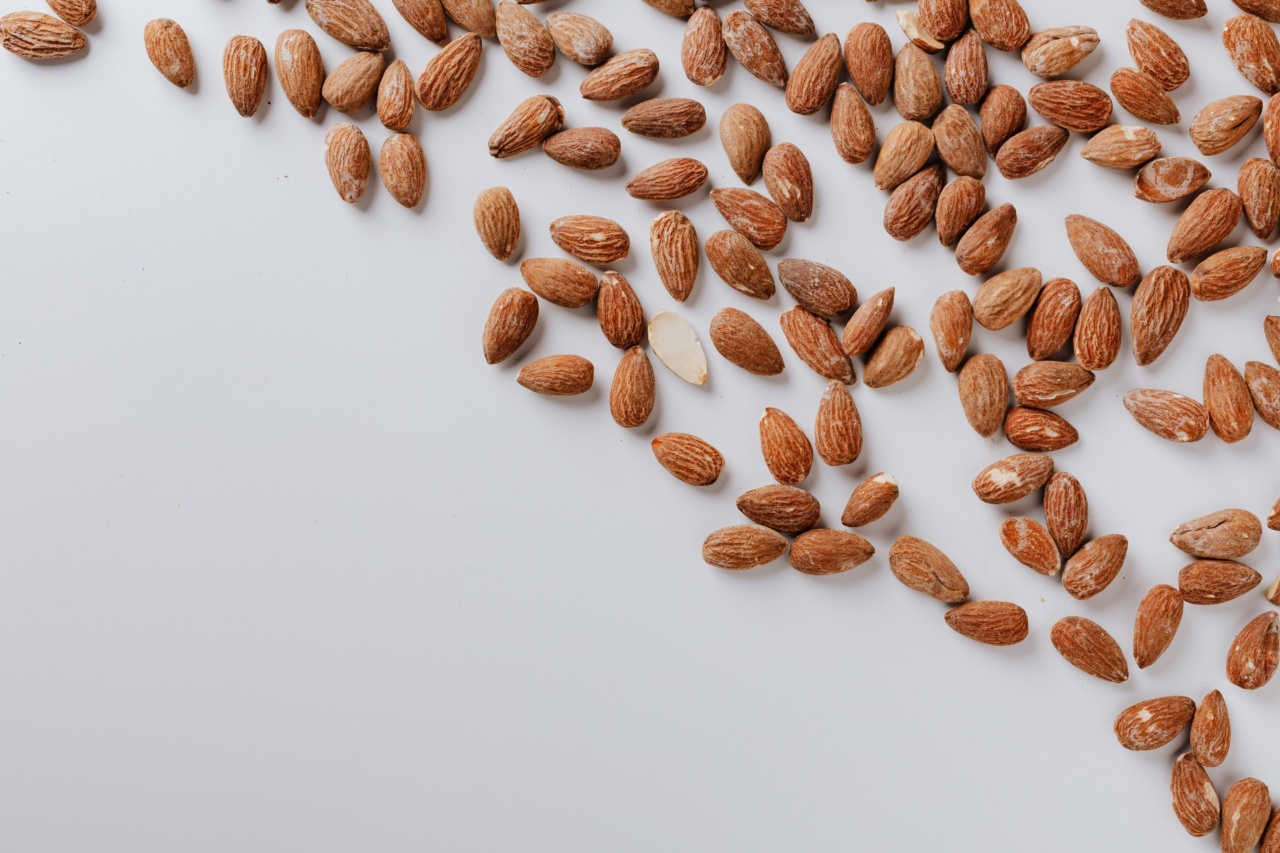Nuts are a tasty and nutritious snack that you can add to your diet. They are nutrient-dense and contain healthy fats, protein, fiber, vitamins, and minerals that are beneficial for your body.
However, to maximize the absorption of these nutrients in your body, you need to consume them in the right way. Here are some tips on how to maximize nutrient absorption from nuts:.
1. Soak Nuts in Water Before Eating
Soaking nuts in water before eating can increase the availability of nutrients in them. Nuts contain phytic acid, which can inhibit the absorption of certain minerals like zinc, calcium, and iron.
Soaking nuts in water for several hours or overnight can help to reduce the phytic acid content, making the nutrients more available for your body to absorb. Soaking also makes nuts easier to digest, which can be beneficial for people with digestive issues.
2. Roast Nuts at Low Temperatures
Roasting nuts can make them more flavorful and crunchy. However, roasting at high temperatures can decrease the nutrient content in them.
To maximize nutrient absorption, roast nuts at a low temperature of around 120-140°C (250-300°F) for about 15-20 minutes. This temperature range reduces the risk of damaging the delicate nutrients in the nuts, and still gives them a delicious flavor and texture.
3. Pair Nuts with Vitamin C-Rich Foods
Pairing nuts with foods rich in vitamin C can improve the absorption of iron in them. Iron is an essential mineral that helps in the production of red blood cells and the proper functioning of the immune system.
Nuts like almonds, cashews, and pistachios are good sources of iron, but the body may not absorb it efficiently unless consumed with vitamin C-rich foods like citrus fruits, berries, broccoli, or peppers.
4. Chew Nuts Thoroughly
Chewing nuts thoroughly can help to break them down into small pieces, making it easier for your body to absorb the nutrients in them.
Chewing also stimulates the production of saliva in the mouth, which contains digestive enzymes that can aid in the digestion and absorption of nutrients.
5. Limit Salted Nuts
Salted nuts can be a tasty snack, but excessive consumption can be harmful to your health. Salted nuts are high in sodium, which can increase blood pressure and contribute to heart disease.
Consuming excessive sodium can also interfere with the absorption of other essential minerals like calcium, potassium, and magnesium. It is recommended to limit your intake of salted nuts and opt for unsalted or lightly salted varieties instead.
6. Incorporate a Variety of Nuts into Your Diet
Each type of nut contains a unique combination of nutrients that are beneficial for your body. Incorporating a variety of nuts into your diet can help to ensure that you are receiving a diverse range of nutrients.
For example, almonds are high in vitamin E, cashews are rich in copper, and brazil nuts are a good source of selenium. Eating a diverse range of nuts can help to maximize the absorption and utilization of nutrients in your body.
7. Store Nuts Properly
The storage of nuts can also affect their nutrient content. Exposure to air, light, and heat can cause the oils in nuts to become rancid, leading to a decrease in their nutrient content and potential health risks.
To preserve the nutrients in nuts, store them in a cool, dark, and dry place, such as a pantry or refrigerator. Nuts stored in an airtight container can maintain their quality and nutrient content for up to six months or longer.
8. Purchase Fresh Nuts
The freshness of nuts can also affect their nutrient content. Purchasing fresh nuts from a reputable source can ensure that they are of good quality and retain their nutrient content.
Stale or old nuts may contain lower levels of nutrients and antioxidants, which can affect your body’s ability to absorb and utilize them.
9. Consume Nuts in Moderation
While nuts are a nutritious food, they are also high in calories. Overconsumption of nuts can lead to weight gain and other health issues.
It is recommended to consume a moderate amount of nuts, such as a handful or two per day, as part of a balanced and varied diet.
10. Listen to Your Body
Everyone’s body is unique, and what works for one person may not work for another. It is essential to listen to your body and adjust your intake of nuts accordingly.
If you notice digestive discomfort or other adverse effects after consuming nuts, it may be an indication that your body is not tolerating them well. In such cases, it is best to consult a doctor or a registered dietician to determine the best course of action.
Conclusion
Nuts are a nutrient-dense food that can provide numerous health benefits when consumed in moderation and the right way.
Soaking nuts, roasting at low temperatures, pairing with vitamin C-rich foods, chewing thoroughly, limiting salted nuts, incorporating a variety of nuts, storing properly, purchasing fresh nuts, consuming in moderation, and listening to your body can help to maximize the absorption and utilization of nutrients in your body.





























